Agriculture & Environment
Mak-CAES research projects to boost food security through climate smart innovations
Published
3 years agoon
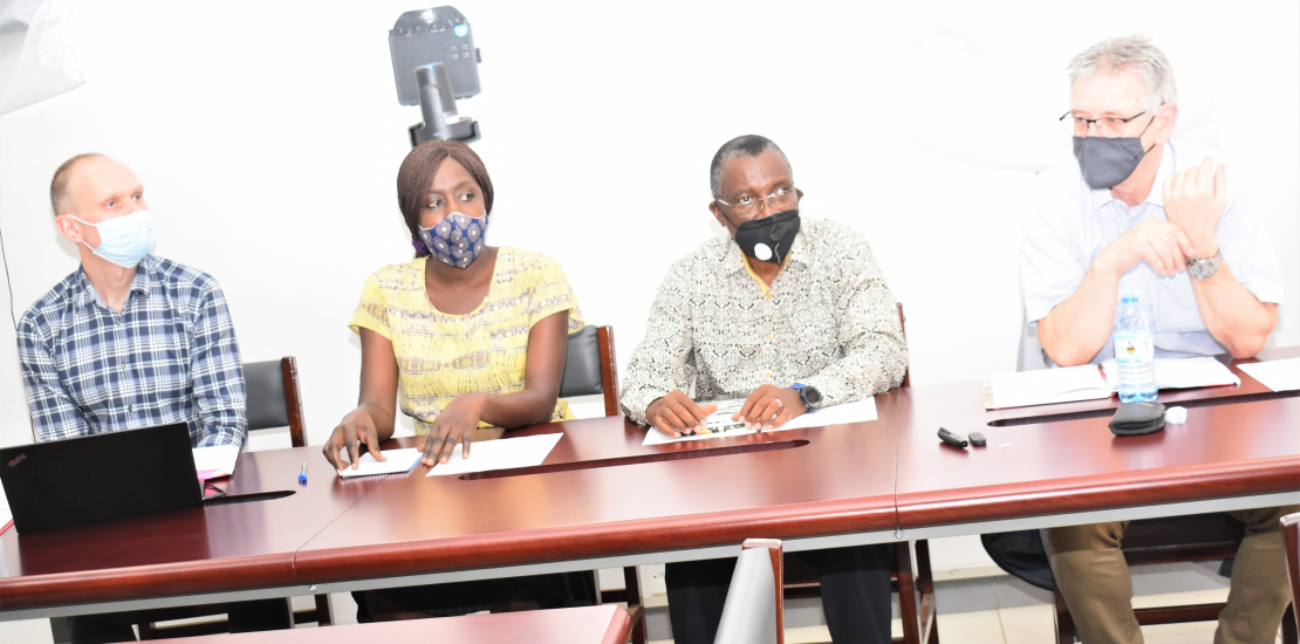
Food insecurity and malnutrition are on the rise in Sub-Saharan Africa (SSA). The slow progress towards food security is partly attributed to demographic pressure, soil quality deterioration, and climate change that have adversely affected agricultural productivity.
To address the challenge, Makerere University College of Agricultural and Environmental Sciences (CAES) in collaboration with the Norwegian University of Life Sciences (NMBU) is implementing two 5-year (2021-2026) capacity building projects aimed at improving food security and livelihoods using climate smart agricultural technologies. The projects namely: “Climate-smart Innovations in Agriculture in Sub Saharan Africa: Improved food security, livelihoods, and soil carbon” (ClimSmart), and “Climate Smart Agriculture in Sub Saharan Africa” (NORHED II) are supported by the Norwegian Research Council (NRC) and the Norwegian Agency for Development Cooperation (NORAD). Partner institutions in Norway include the Norwegian Geotechnical Institute (NGI) and Menon Economics while in the South, partners include Gulu University’s Faculty of Agriculture and Environment; Rural Enterprise Development Solutions (REDS); Hawassa University’s Wondo Genet College of Forestry and Natural Resources; University of Zambia’s School of Agricultural Sciences; and University of Juba’s School of Natural Resources and Environmental Studies.
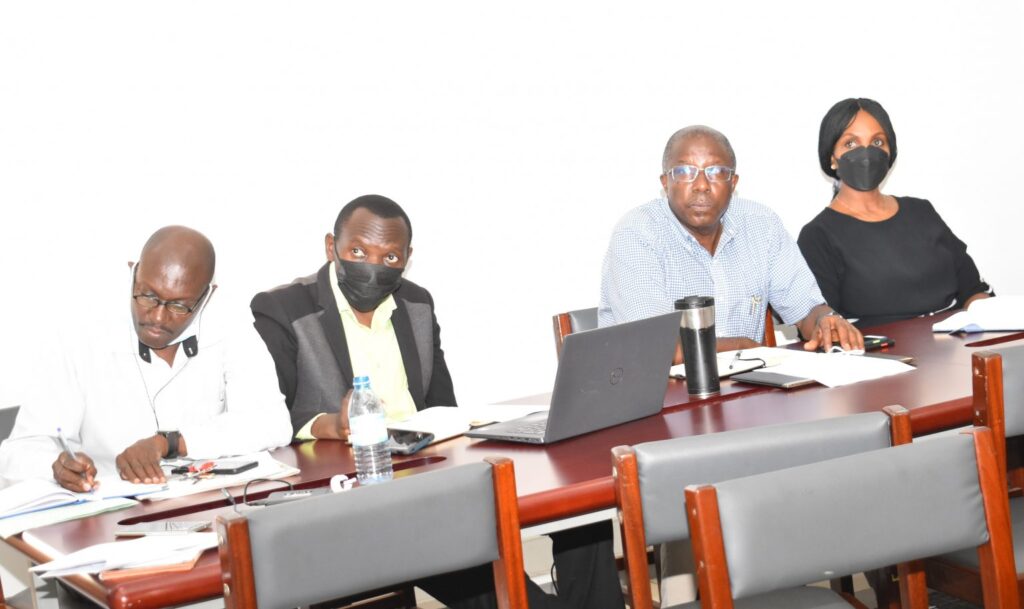
The overall objective of the ClimSmart project is to contribute to increased food security, on-farm profitability, and entrepreneurship in communities of smallholder farms in Uganda, thus improving livelihoods through training and implementation of novel climate-smart practices in Agriculture. The overall objective of the NORHED II project is to generate and share new knowledge and to contribute to capacity building with respect to food security and on-farm profitability in Sub-Saharan Africa through innovative and sustainable climate-smart technologies.
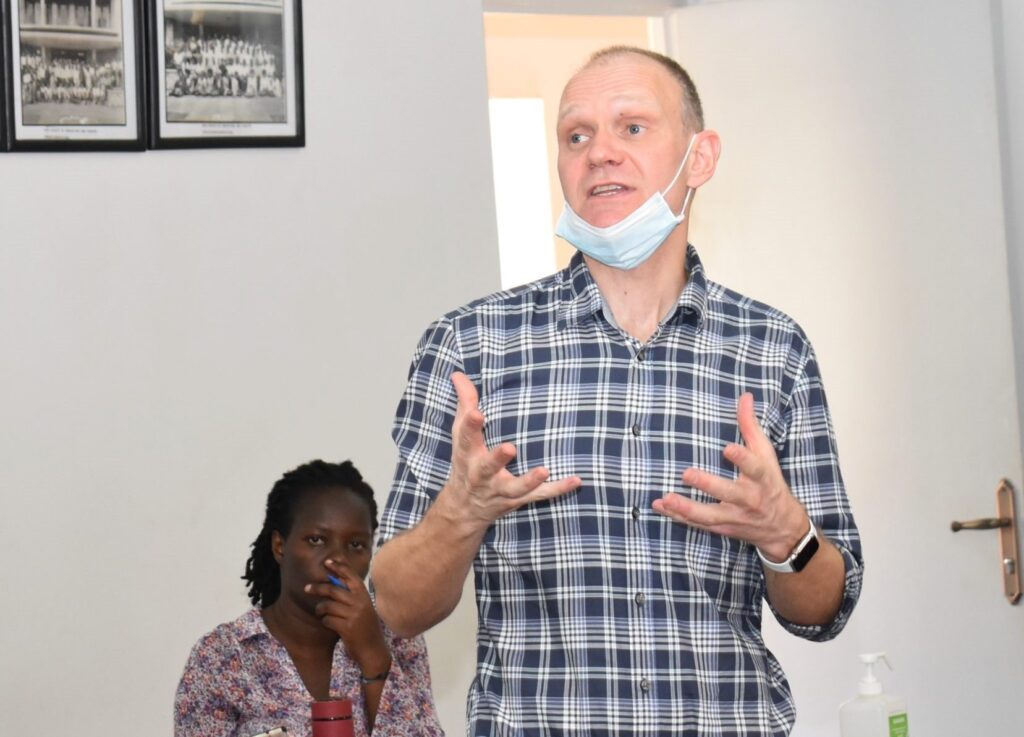
The project sites in Uganda are in Alebtong and Mubende districts representing two distinct agro-ecological zones. Broad activities under the projects´ objectives include setting up, running, and monitoring controlled field experiments and pot experiments; setting up randomized control trials and conducting surveys; training farmers on Climate Smart Agriculture technologies; collecting and analyzing data for all experiments; and knowledge generation and knowledge transfer.
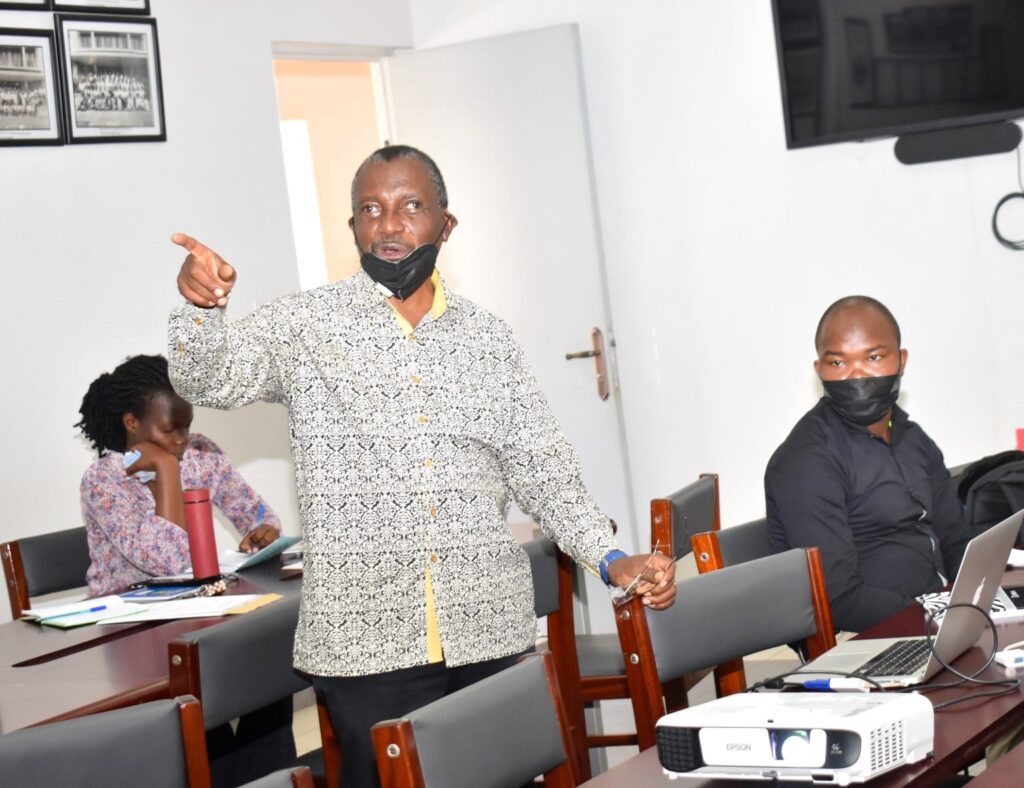
Expected outputs under the NORHED II project
Expected outputs under the NORHED II project include; 8 MSc students and 5 PhD students in the South; One PhD funded by NMBU -MINA; two post-doctoral scholarships; strengtheningresearchcapacity at the participating institutions; andabout 30 peer reviewed joint scientific publications. Further capacity building is expected through organization of three summer schools involving all partners, students from the five universities, as well as NGO’s and government representatives. Each summer school will involve one student from NMBU and two students from each of the partner institutions in the South leading to a total of 48 students trained in novel Climate Smart Agriculture (CSA) technologies. Other outcomes will include scientific exchange stimulated by scholarships for two students or staff at each of the partner institutions in the South for short-term mobility from South-North; Curricula development; developed CSA innovations packaged into policy briefs, and extension manuals; 1000 farmers trained in pigeon pea production in Uganda and Zambia and 500 smallholders trained in biochar production in both Zambia and Uganda, using pigeon pea biomass as feedstock. In addition, methods and results for CSA and impact assessments will be integrated into academic curricula on sustainable agriculture in the partner universities.
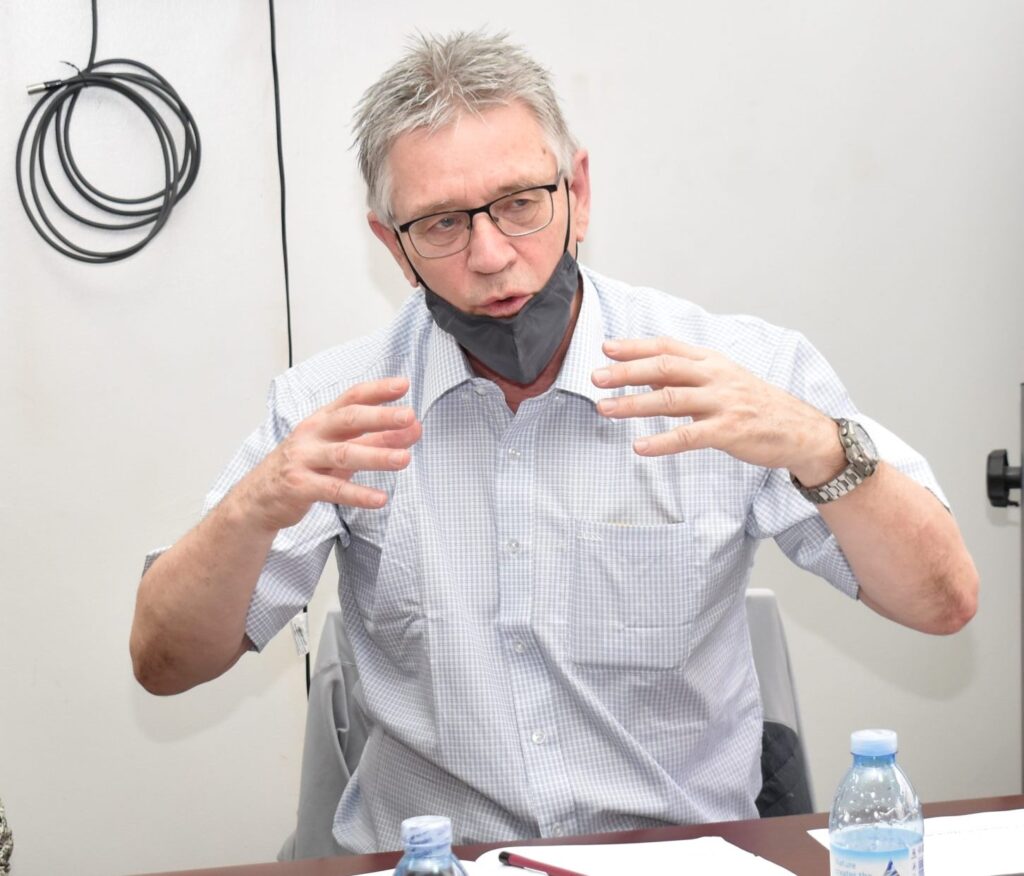
Expected outcomes
Overall, the project is expected to enhance agricultural productivity and income of smallholder farmers through sustainable intensification in the target countries as well as a better qualified workforce in Sub Saharan Africa. It is also expected to strengthen the quality and relevance of education and research programmes of the participating organizations, increase capacity and competence of university staff and students, and improve stakeholder engagements.
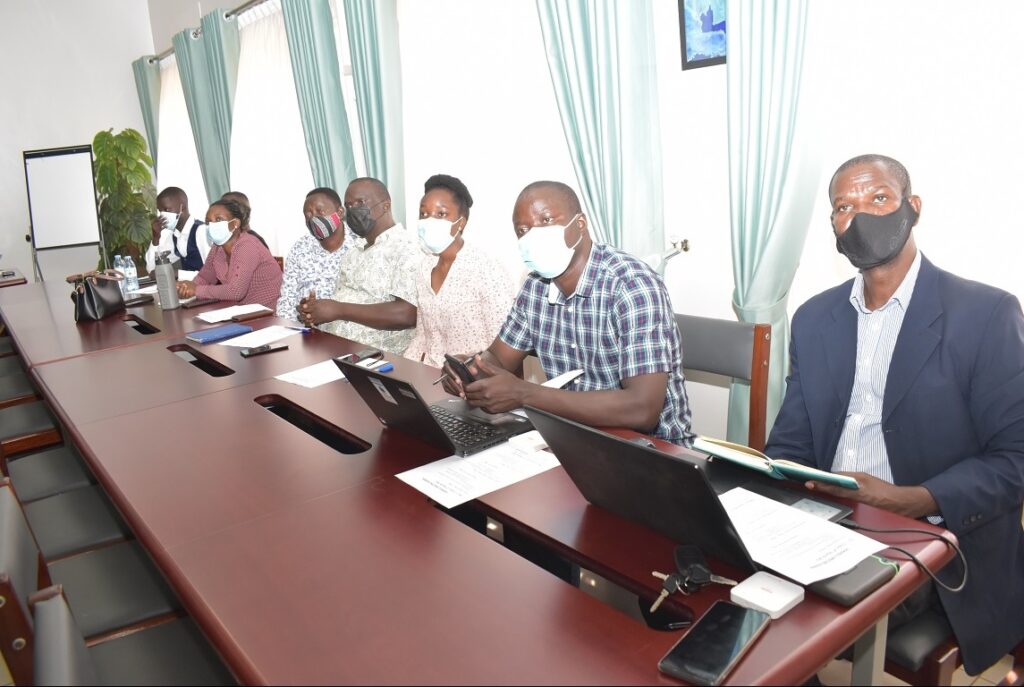
CAES Researchers, Norwegian Professors discuss project implementation plan
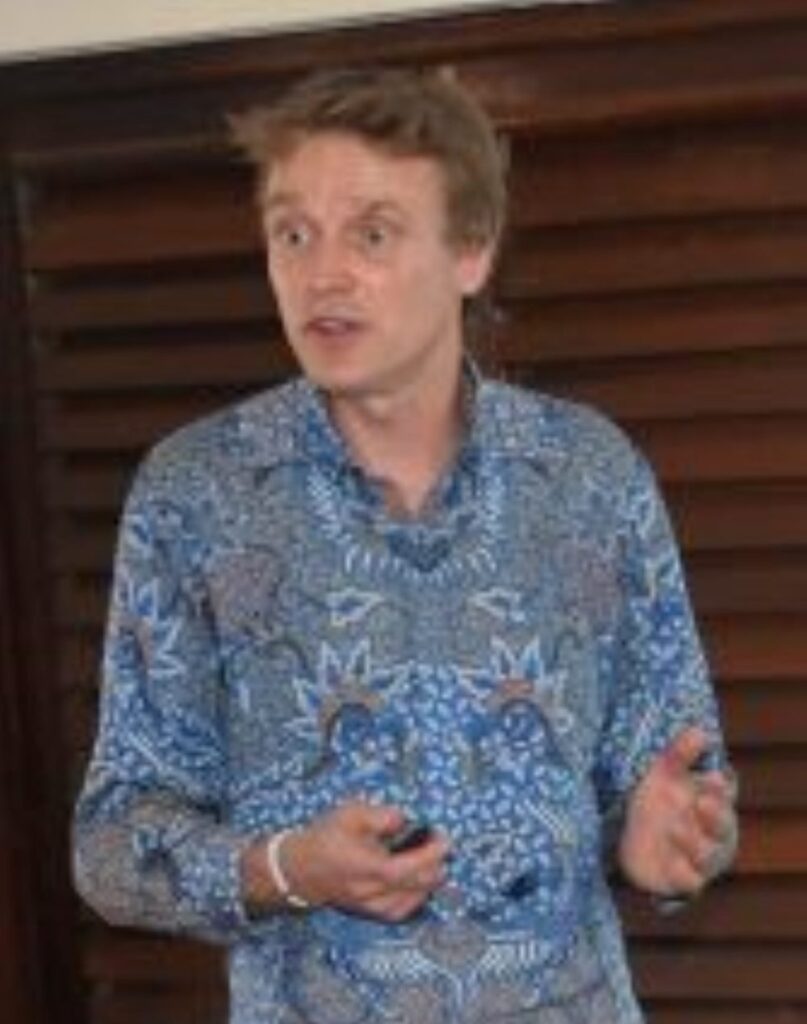
In a bid to streamline and strengthen the NORHED II project activities, Prof. Vegard Martinsen and Prof. Jan Mulder from the Norwegian University of Life Sciences visited Uganda on 2nd-11th March 2022 to engage their counterparts on a number of issues. On 4th March 2022, the two Professors met the project team in Uganda to deliberate on the implementation plan. The meeting held at the School of Agricultural Sciences, CAES was attended by, among others, Prof. Samuel Kyamanywa (PI of NORHED II CSA), Dr Jackline Bonabana-Wabbi (PI ClimSmart and Co-PI NORHED II CSA), Dr Basamba Ali Twaha Ateenyi (project member), representatives of partner institutions including; Dr. Alfred Obia, Coordinator of the projects at Gulu University and Mr. Edward Gitta from Rural Enterprise Development Solutions, as well as PhD students supported by the project. Other members on the project are; The Principal of CAES, Dr Gorettie N. Nabanoga from the Department of Extension and Innovation Studies; Prof. Frank Kansiime from the Department Environmental Management; Prof. Majaliwa Mwanjalolo from the Department of Geography, Geoinformatics and Climatic Sciences; Dr Yazidhi Bamutaze from the Department of Geography, Geoinformatics & Climatic Sciences; and Dr. Patrick Musinguzi from the Department of Agricultural Production.
Planned research activities under the NORHED II project
Under the project, the research team intends to address issues related to crop production, soil water management, soil fertility management, and the socio-economic aspects in regard to climate smart technologies in agriculture. Under soil fertility management, the researchers plan to among other things, assess biomass production and soil carbon sequestration in rain-fed cropping systems under different climate change scenarios. They also plan to study the dominating food production systems to unravel bottlenecks in terms of yield and quality, and to identify and optimize inexpensive (on farm) sources of mineral nutrition such as farmyard manure and household compost.
Under Soil Water Management, the research team will determine the effects of traditional tillage systems, soil bunds and other CSA strategies on rainwater harvesting, runoff, soil erosion and nutrient loss at different scales. They will also examine the effects of CSA practices on soil physical properties, soil water availability and crop yield. The researchers will also quantify different aspects of the water balance under different CSA management practices to ensure sustainable use of surface and subsurface water and minimize erosion risks.
Examining the socio-economic aspects in relation to Climate Smart Agriculture (CSA) technologies, the researchers will determine the contribution of CSA technologies to yield, net farm incomes, food security and poverty reduction. They will assess social acceptance and socio-economics of CSA technologies; determine farmers’ willingness to accept CSA technologies; establish stakeholder perceptions of CSA technologies using the SWOT-AHP approach to ascertain their relative strength and weaknesses; determine business opportunities associated with developed CSA technologies; and investigate the most appropriate uptake pathways for scaling CSA technologies and limiting attrition rates once adopted.
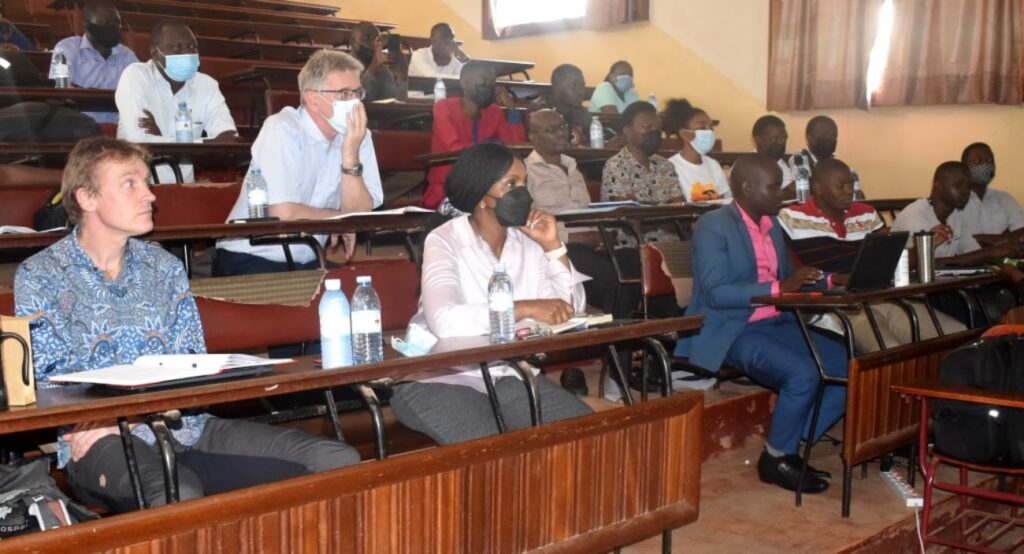
Guest lectures
During the week-long visit, the Norwegian professors toured the project sites in Alebtong and Mubende districts and delivered guest lectures to the University community.
During the guest lectures delivered on 11th March 2022, Dr Alfred Obia from the Faculty of Agriculture and Environment at Gulu University discussed the potential of biochar as a soil enhancer in crop production, shedding light on the effects of biochar on soil physical and chemical properties, and its contribution towards mitigating the effects of climate change. Biochar refers to carbonized biomass obtained from sustainable sources and sequestered in soils to sustainably enhance their productivity.
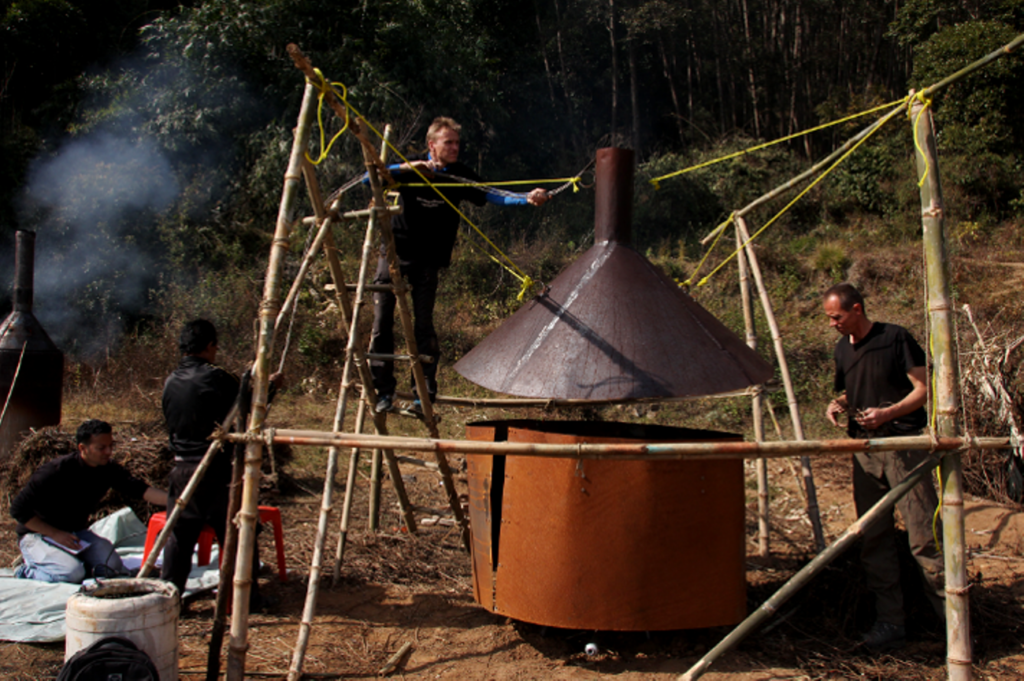
Prof Gerard Cornelissen, a technical expert at the Norwegian Geotechnical Institute and a professor at the Norwegian University of Life Sciences, explained the process of making biochar from contaminated organic waste to clean-up water and soil, whereas Prof. Vegard Martinsen a researcher at the Norwegian University of Life Sciences and Principal Investigator of the ClimSmart and NORHED II projects shared insights into conservation agriculture in Sub Saharan Africa.
In his presentation titled “Testing the pigeon pea – biochar – maize value chain”, Jan Mulder, a Professor of Soil Science at the Norwegian University of Life Sciences explained how the pigeon pea and its biochar greatly enhance soil fertility through increased soil organic matter, improved water retention, improved retention nutrient cations, improved soil structure (aggregates), decreased erodibility, increased nitrogen availability and increased phosphorus availability.
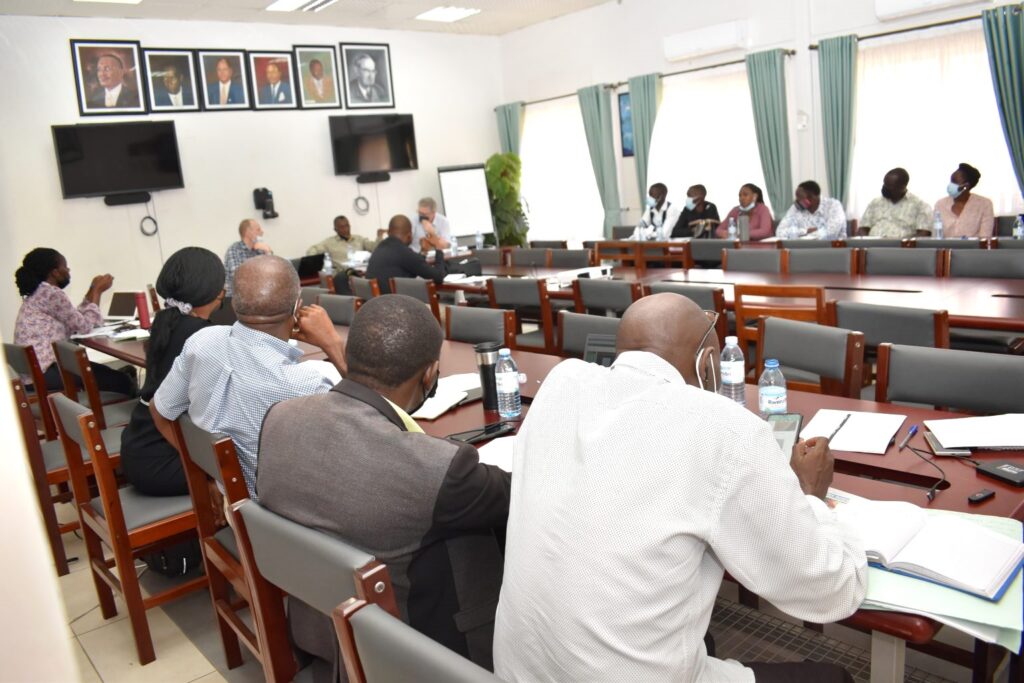
You may like
-


EfD-Mak Holds 2nd Advisory Board Meeting: Charts Path for Growth
-


Celebrating the Life of Prof. Livingstone Sserwadda Luboobi
-
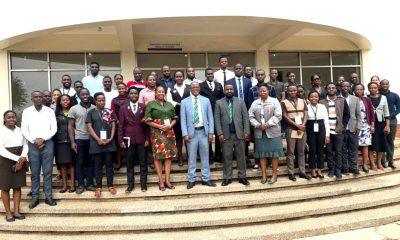

Mak Moves to Revitalize Food Technology & Business Incubation Centre to Drive Innovation & Entrepreneurship
-
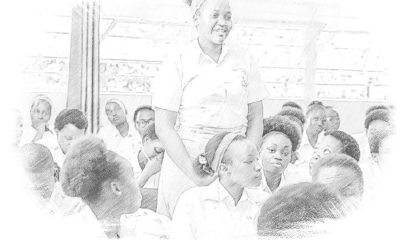

Ugandan Study Flags Girls and Senior Students as a Mental Health High-Risk Group
-
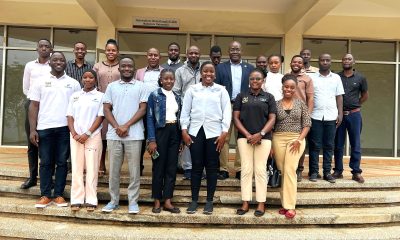

SophiA Project Upgrades Medical Infrastructure at Buvuma Health Centre IV, Trains Technicians for Maintenance Works
-
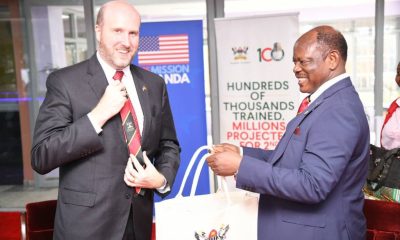

Happy Independence Day, America
Agriculture & Environment
Mak Moves to Revitalize Food Technology & Business Incubation Centre to Drive Innovation & Entrepreneurship
Published
5 days agoon
July 14, 2025By
Mak Editor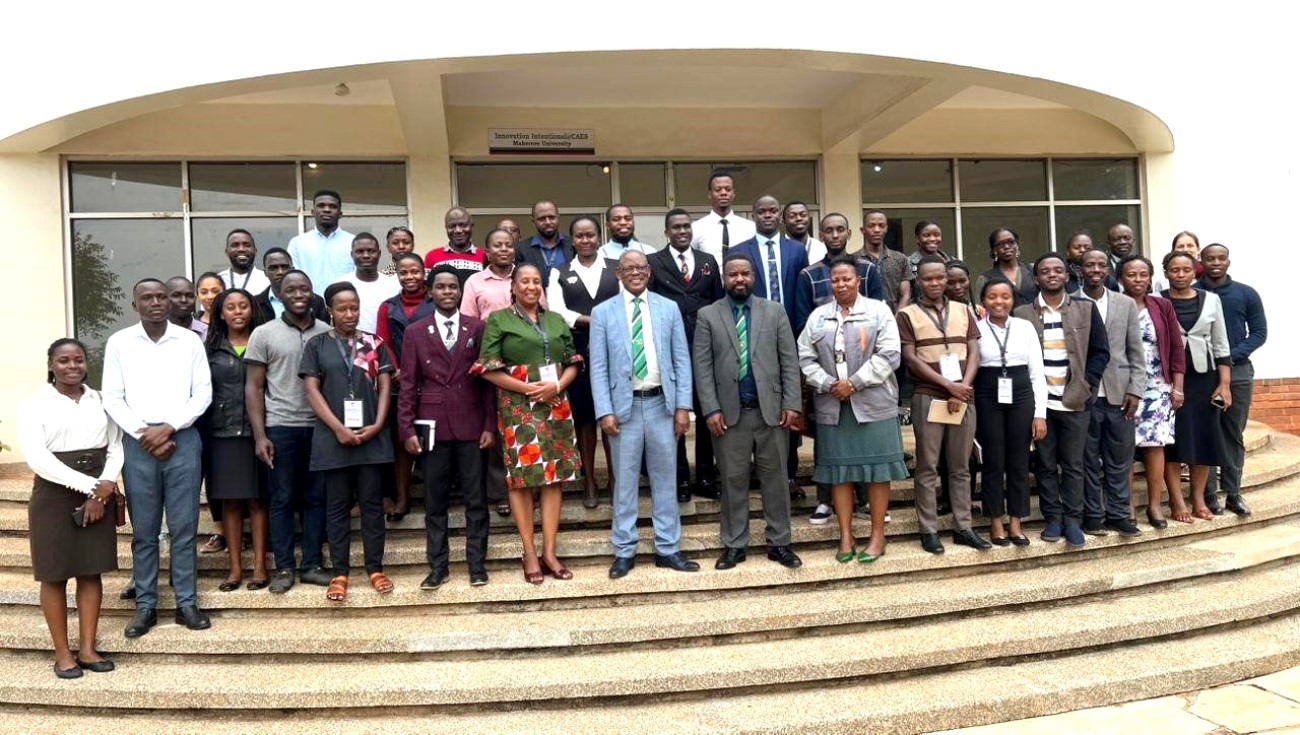
By Ssembogga Derrick
Makerere University marked a significant milestone on Thursday, 10th July 2025, with the launch of the revitalization programme for the Food Technology and Business Incubation Centre (FTBIC). This initiative is poised to position the FTBIC as a national hub for food innovation, student enterprise development, and agro-industrial transformation.
Hosted under the School of Food Technology, Nutrition and Bioengineering (SFTNB) at the College of the Agricultural and Environmental Sciences (CAES), the revitalization of the FTBIC is intended to bridge the gap between academia and industry. “We aim to achieve this by supporting food-based start-ups, enhancing graduate entrepreneurship, and promoting the commercialization of research,” Dr Julia Kigozi, Dean, SFTNB explained. The project receives critical funding from the Makerere University Research and Innovations Fund (MakRIF), which consistently supports innovation and research-based development at the university.
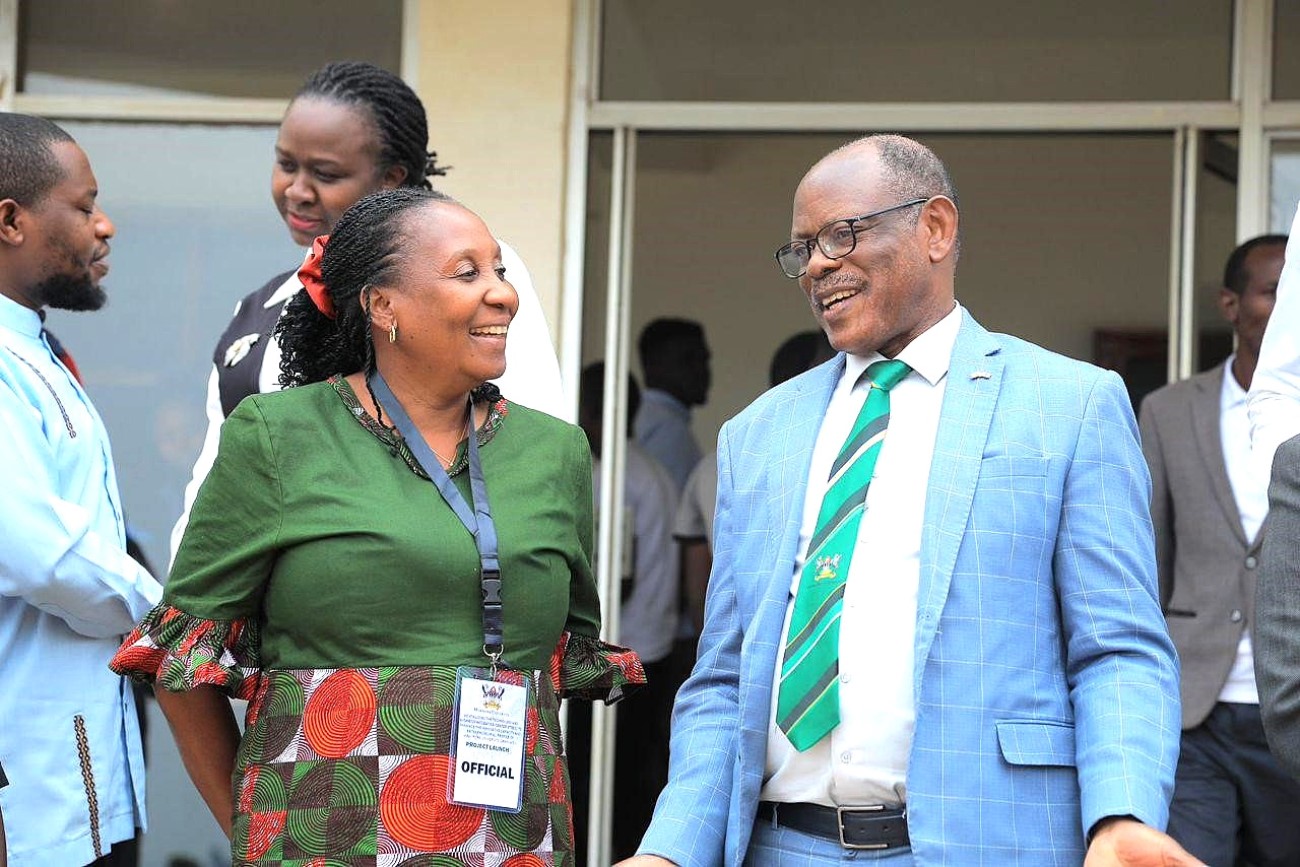
Unveiling a New Strategic Vision
The event, held under the theme “Revitalizing FTBIC to Unlock Innovation and Entrepreneurship Potential among Makerere University Graduates”, marked the official launch of the Centre’s revitalization programme to key stakeholders. It featured the presentation of FTBIC’s new strategic vision and direction, highlighting the commitment of the institution and its partners to fostering graduate entrepreneurship and innovation in food systems. The event also aimed to raise awareness of the Centre’s crucial role in supporting industry, research, and national development.
Participation of stakeholders
The launch attracted a vibrant and diverse audience of over 50 participants. Among the attendees were student representatives; partners from other incubation centers both within and outside Makerere University, including MIIC, UNIPOD, and DGI; as well as representatives from national innovation stakeholders such as Uganda Industrial Research Institute (UIRI) and StartHub Africa.
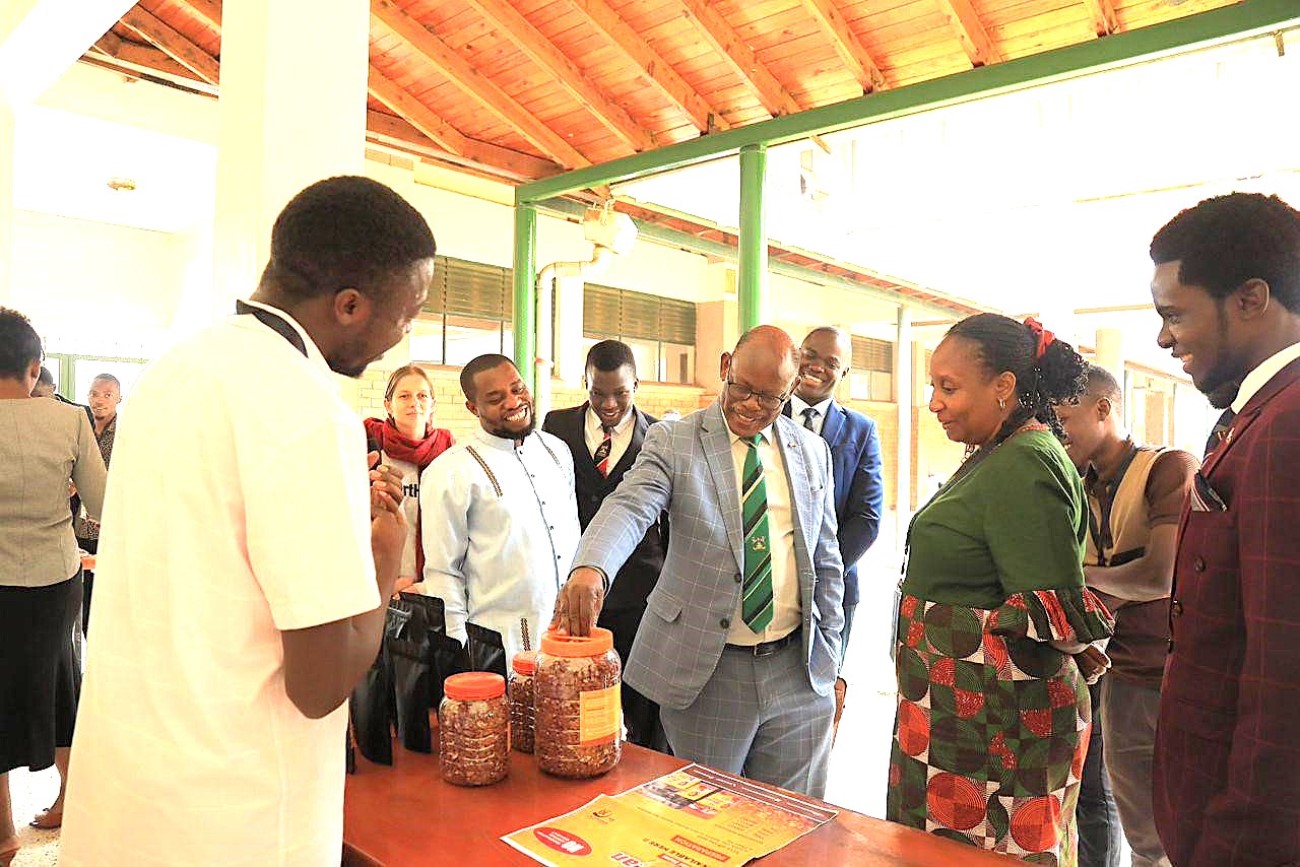
Most notably, the event was honored by the presence of the Vice Chancellor of Makerere University Prof. Barnabas Nawangwe. The Vice Chancellor commended the revitalization efforts, acknowledging the Centre’s immense potential to incubate hundreds of food-based start-ups and create employment opportunities for thousands of graduates. “The Centre is now well-positioned to become a flagship platform for innovation, employment creation, and agro-industrial development in Uganda and beyond. Makerere University remains committed to supporting such initiatives that align with national priorities and global development goals.”
The event featured the unveiling of the operational framework for the revitalized Centre, highlighting its commitment to innovation, entrepreneurship, and practical graduate training. Stakeholders in attendance expressed enthusiasm and pledged support for future collaboration, research, and product development initiatives aligned with national development priorities. The event also provided a platform to deepen partnerships with private sector actors and development organizations, reinforcing confidence in the Centre’s potential to serve as a national model for university-led incubation.
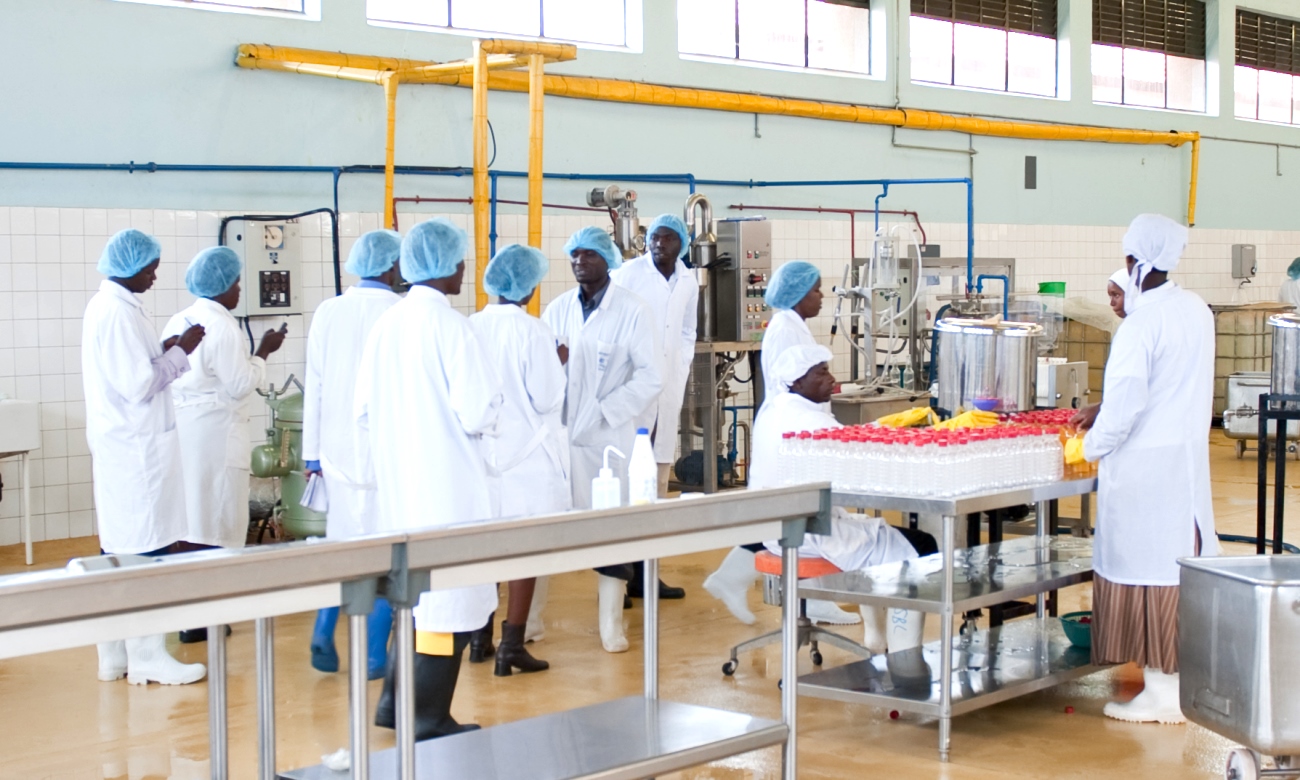
Agriculture & Environment
SophiA Project Upgrades Medical Infrastructure at Buvuma Health Centre IV, Trains Technicians for Maintenance Works
Published
1 week agoon
July 9, 2025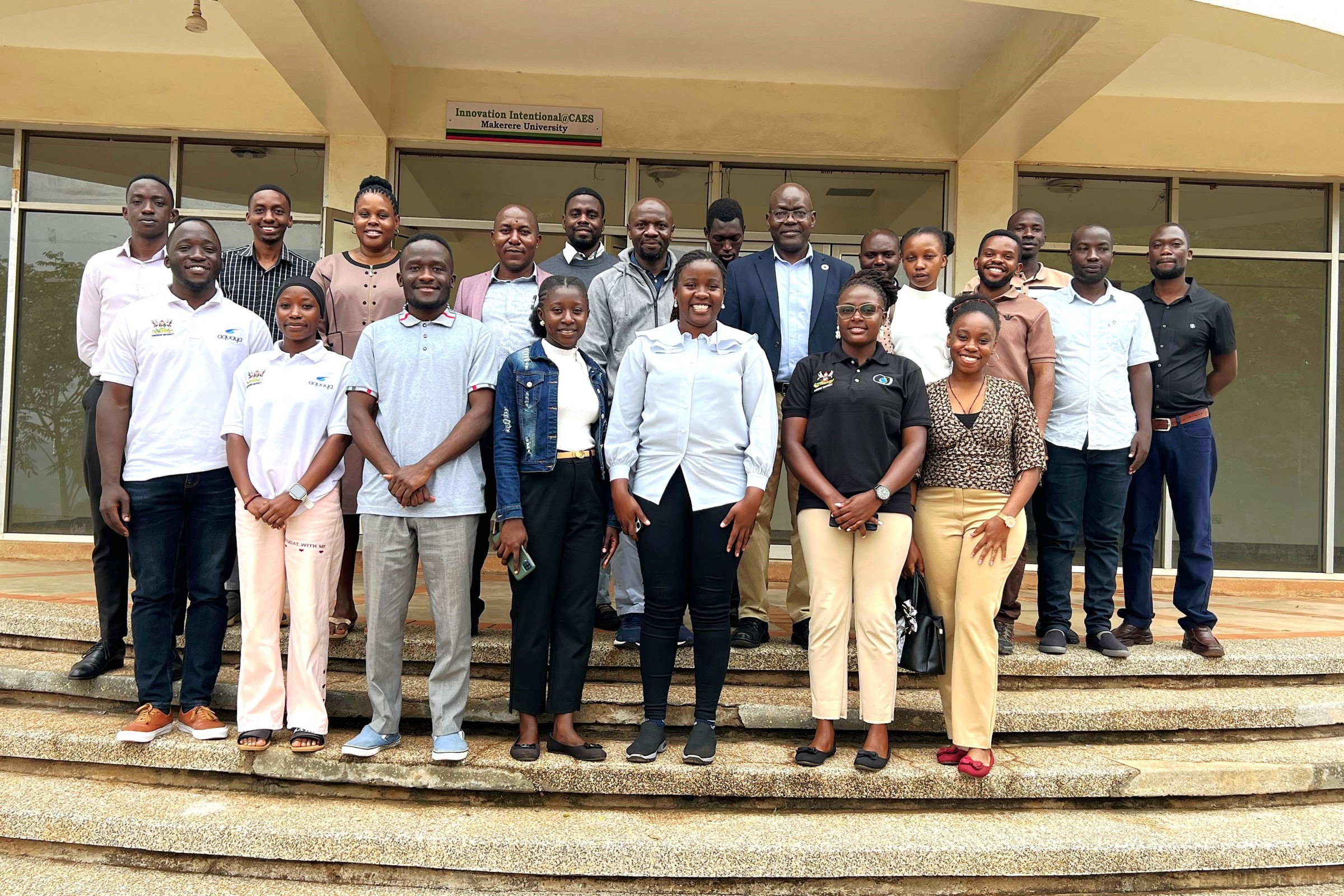
Overview of the Sustainable Off-Grid Solutions for Pharmacies and Hospitals in Africa (SophiA) Project
Despite ongoing urbanization across Africa, the majority of the population still resides in rural and remote areas, where infrastructure development remains limited. These regions face significant challenges such as lack of access to healthcare, education, clean water, and reliable electricity, contributing to higher rates of illness and poverty compared to urban centres. According to reports, Sub-Saharan Africa has approximately 120,000 public health facilities (22,000 hospitals and 98,000 health posts), of which around 26% lack any electricity access, and only 28% have reliable power supply.
Access to good healthcare is critical for sustainable development. However, many rural medical centres operate under harsh conditions – using polluted water, lacking cooling for medicines, and facing poor sanitation – largely due to unreliable electricity and water supply. Although half of the population in Sub-Saharan Africa lacks electricity, the region has abundant renewable energy potential that can be effectively harnessed through off-grid solar photovoltaic (PV) systems.
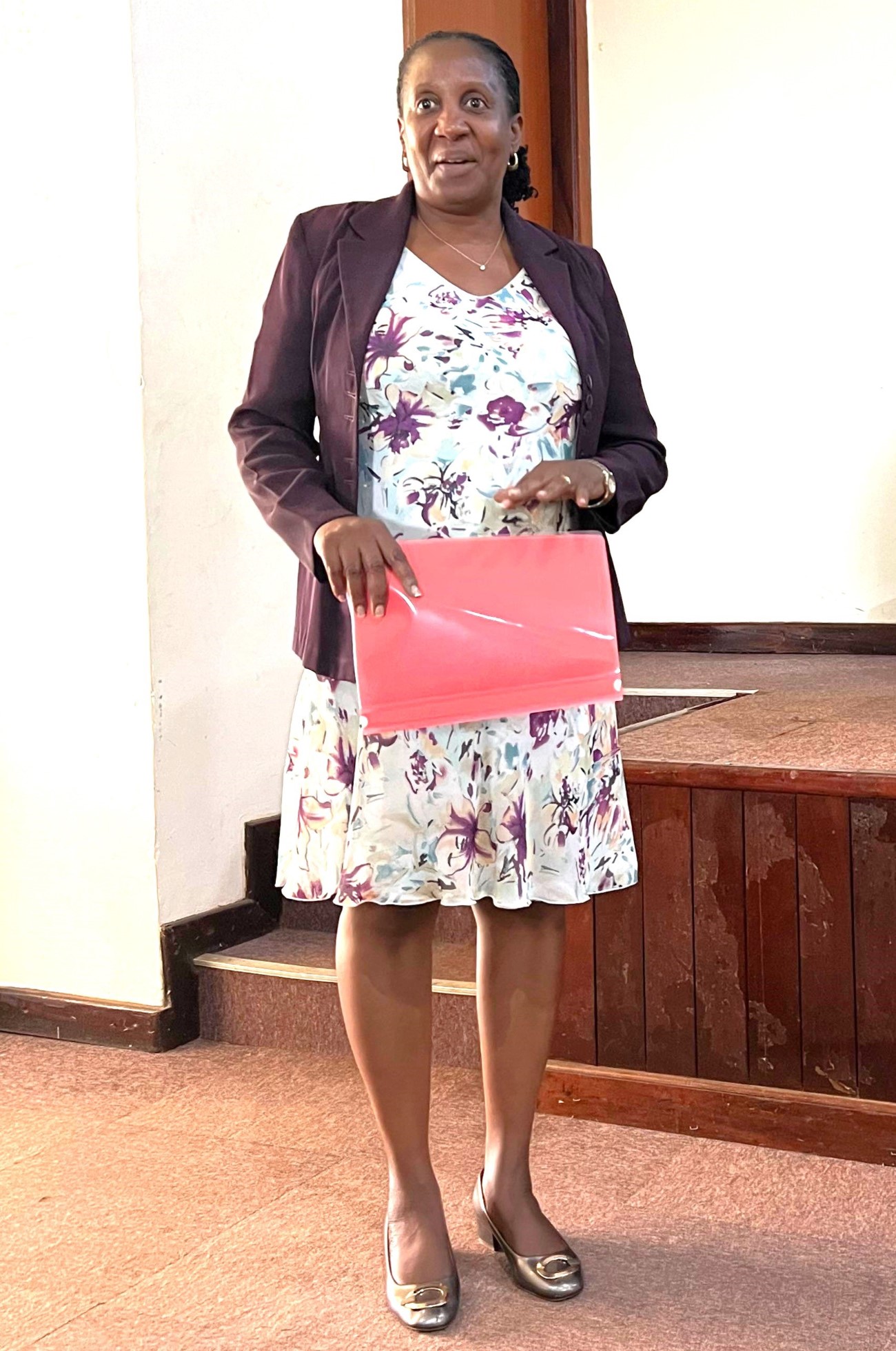
To address the above-mentioned challenges facing the African Continent, Makerere University in partnership with 13 organizations across Europe and Africa developed a project titled, “Sustainable Off-grid solutions for Pharmacies and Hospitals in Africa (SophiA)”. The five-year project that began on 1st October 2021 is funded by the European Union (Project: 101036836 – SophiA – H2020-LC-GD-2-3-2020). At Makerere University, the project is coordinated by Dr. Nicholas Kiggundu, Associate Professor in the Department of Agricultural and Biosystems Engineering, College of Agricultural and Environmental Sciences (CAES).
Piloted in Burkina Faso, Cameroon, Malawi, and Uganda, SophiA aims to provide sustainable off-grid energy solutions to rural and remote health facilities, fostering economic growth and ensuring equitable access to energy and healthcare. Using various technologies, such as photovoltaics, solar thermal, electrical and thermal storage, water treatment and natural refrigerants with low global warming potential, SophiA has developed and manufactured locally innovative, modular, affordable and efficient solar powered systems for providing:
- Safe and clean drinking water, free of bacteria and viruses, and deionised water for medical purposes;
- Hot water and steam production for thermal requirements of the hospitals;
- Cooling of medicines and food at +5°C;
- Low temperature storage of blood plasma and vaccines at -30°C;
- Ultra-low temperature storage of sensitive medication (e.g. some Covid-19 or Ebola vaccines) at -70°C.
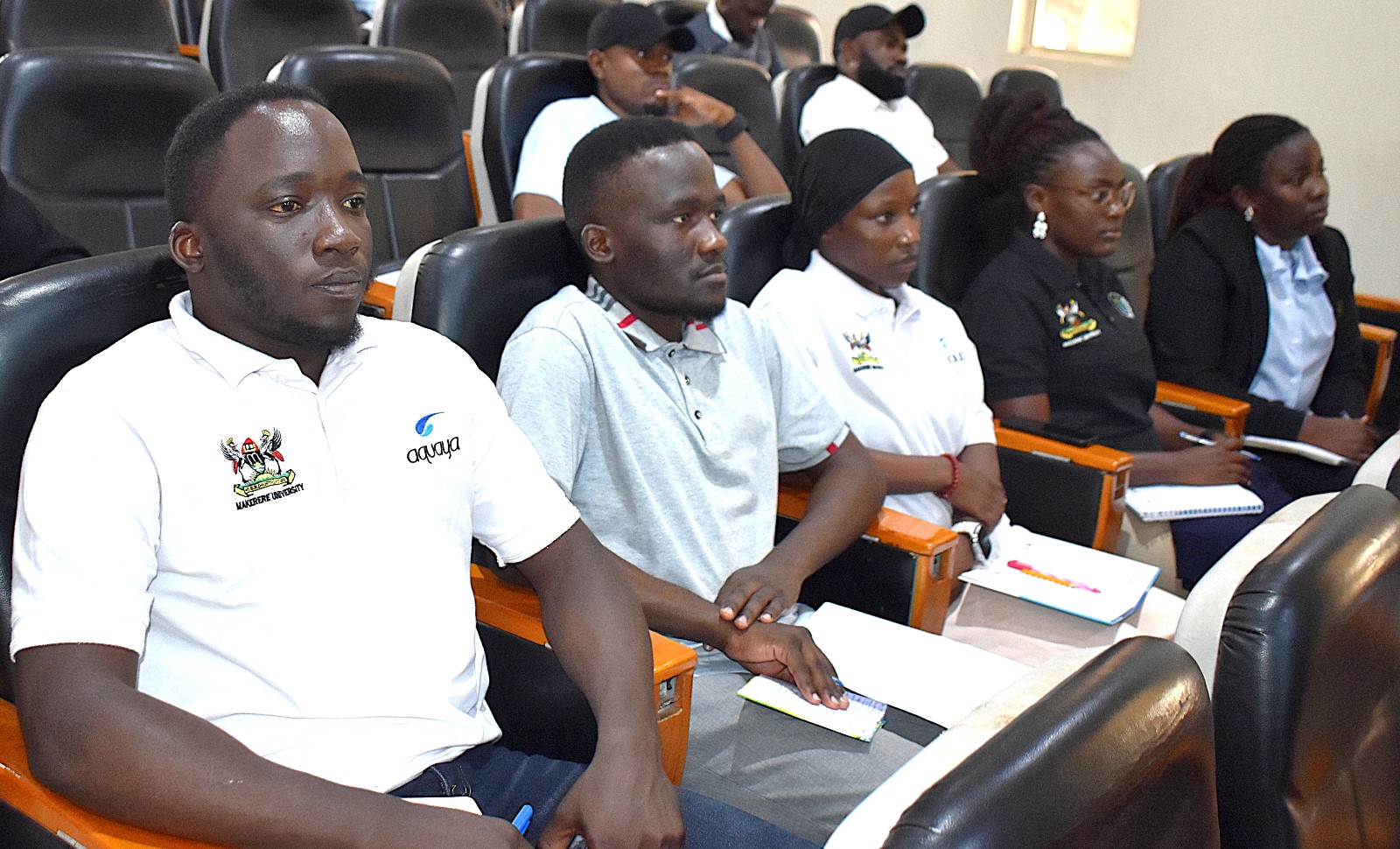
In addition, PV MedPort, a simple and 100% solar-powered solution has been developed and tested as a mobile health care station in small remote areas in 4 different geographical conditions in Africa. The SophiA system has been manufactured in Africa and will provide, for the first-time, innovative solutions based on climate-friendly natural refrigerants to cover cooling demand for three different temperature ranges (-70°C, -30°C and +5°C). The system has been tested and demonstrated at four rural hospitals in remote regions throughout the African continent covering the major geographical regions and different climatic conditions in Burkina Faso, Cameroon, Malawi and Uganda.
SophiA Project initiatives in Uganda
In Uganda, all Health Centre IV hospitals with surgical theatres have been connected to the national grid except Buvuma Health Centre IV, which serves over 120,000 people scattered across 52 islands. Recognizing this gap, the Ministry of Health selected Buvuma Health Centre IV for the SophiA project to demonstrate sustainable off-grid solutions.
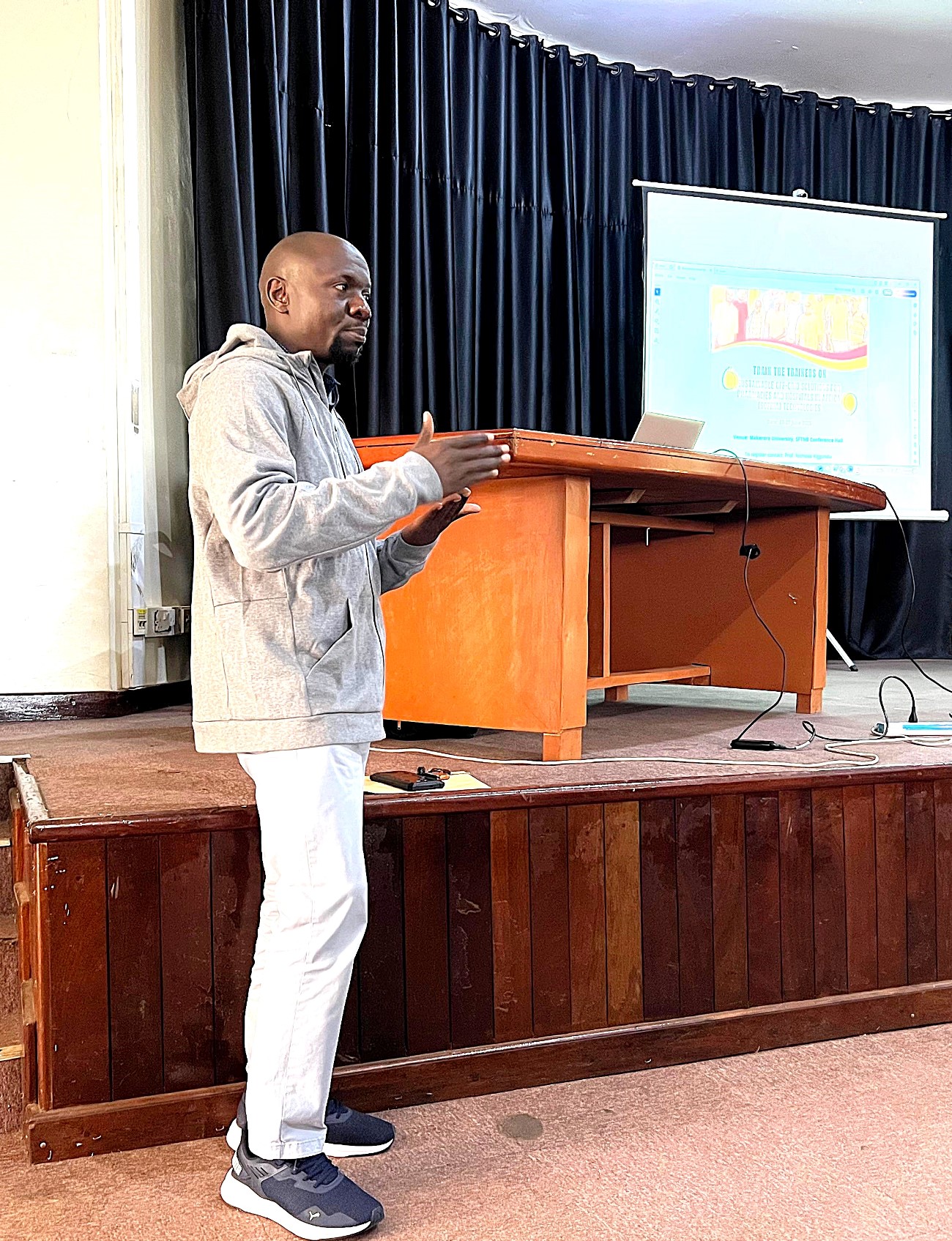
The SophiA System at Buvuma Health Centre IV provides the following services:
- Off-grid electricity supply
- Safe, clean drinking water for patients, staff, and the community
- Hot water and steam systems crucial for maternal care
- Solar-powered cooking and meal preparation
- Cooling systems for surgery and intensive care units
- Refrigeration for medicines at +5°C, blood plasma storage at -30°C, and ultra-low temperature storage (-70°C) for sensitive vaccines such as those for COVID-19 and Ebola
Training of Trainers Workshop
As the SophiA project approaches completion in September 2025, it is vital to establish a skilled pool of technicians capable of handling maintenance and minor repairs of the system components, including solar panels, water treatment units, generators, batteries, and cooking kits.
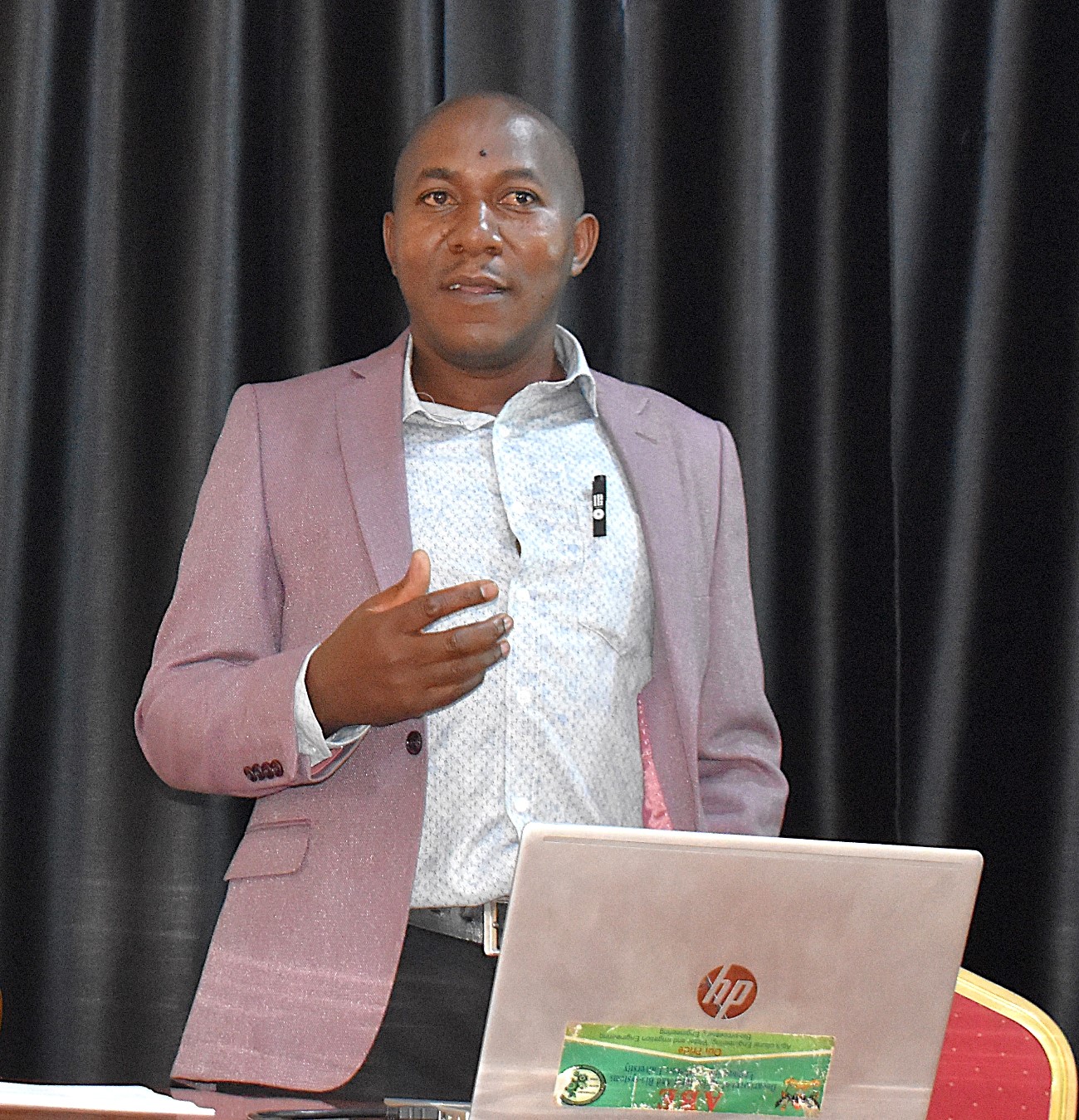
From June 23 to 27, 2025, Makerere University hosted a comprehensive Training of Trainers workshop. The training programme encompassed a diverse range of topics delivered by subject matter experts from institutions, including Makerere University (Department of Agricultural and Biosystems Engineering – CAES, and the College of Engineering, Design, Art and Technology – CEDAT), Hochschule University of Applied Sciences, and Busitema University. Participants were carefully selected from diverse professional backgrounds, including recent engineering graduates from CAES and CEDAT, Makerere University, University technical staff, personnel from Kyambogo University, officials from Buvuma District Works and Health Departments, and electricians from Kampala City. The training sessions were conducted at Makerere University and Buvuma Health Centre IV Hospital.
Training Modules Included:
- Sustainable energy systems and their practical applications
- Energy generation and storage technologies
- Solar water heating: design, operation, maintenance, and performance optimization of solar water heaters, crop dryers, and concentrating solar heaters
- Solar PV technologies in Uganda: cell technology, system design, operations, maintenance, and hands-on practicals for standalone and grid-connected systems
- Public health implications of water quality
- Water treatment and quality management, including protocols, parameters, and case study on the MCDI treatment system
- Water quality testing methodologies
- Introduction to sustainable refrigeration and cooling technologies
- Environmental impact and safety considerations for refrigerants
- Refrigeration cycles and component overview
- Life cycle assessment of SophiA technologies
- Thermal energy storage within the SophiA system
- Steam as a productive energy source
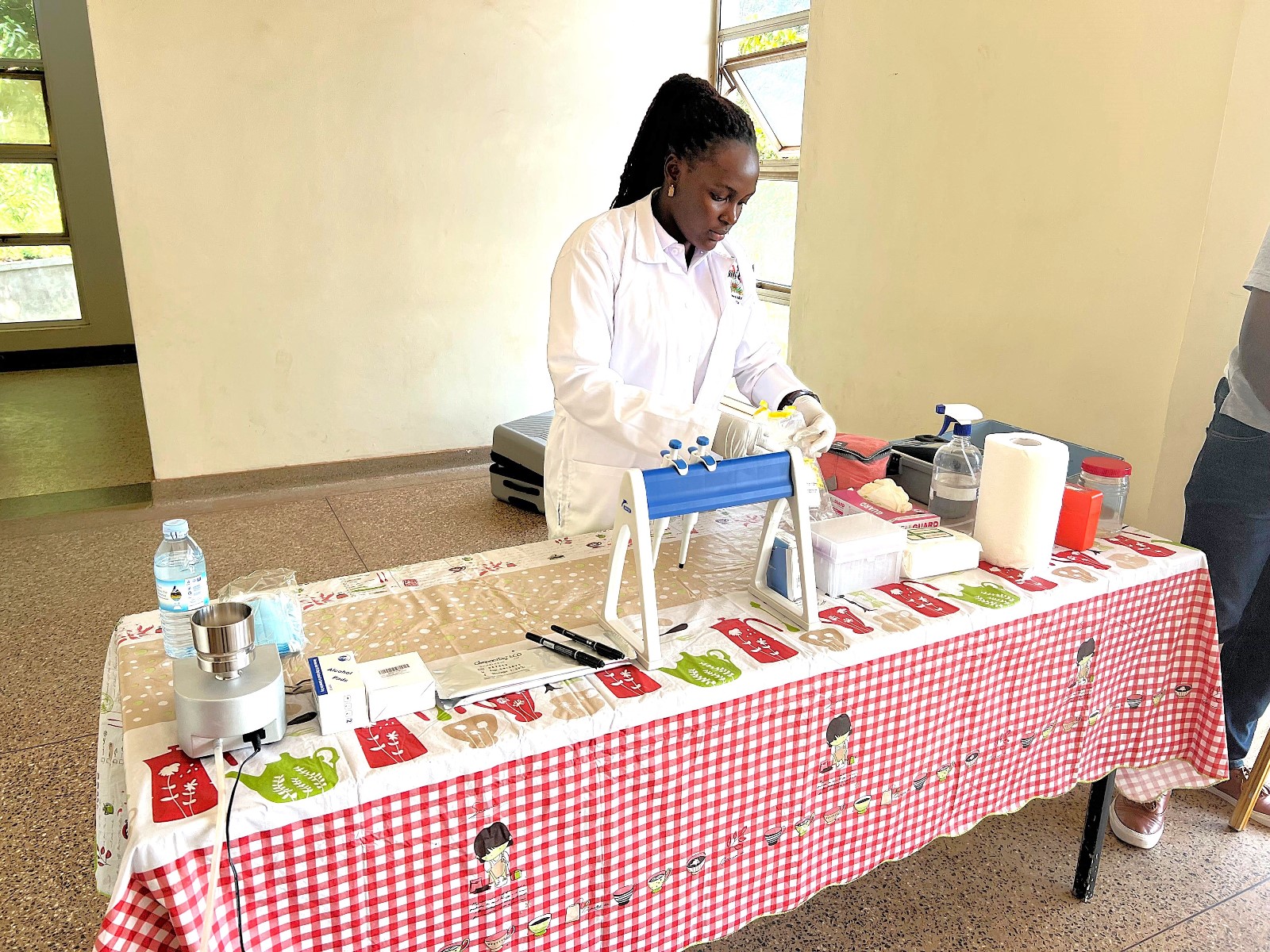
The Training Sessions
Day One: Introduction to foundational concepts in solar energy technologies
The first day of the SophiA Train the Trainers Workshop focused on building foundational knowledge in sustainable and solar energy systems. Led by Dr. Peter Tumutegyereize and Dr. Francis Mujjuni, participants explored a range of technologies and applications critical to clean energy deployment.
Key topics included:
Sustainable Energy Systems: Introduction to renewable energy systems including bioenergy, hydro, wind, geothermal, hydrogen fuel cells, and battery storage.
Solar Radiation & Geometry: Understanding solar constants, irradiance, and the impact of atmospheric conditions on solar performance.
Solar Thermal Technologies: Detailed look at solar water heating systems (FPCs and ETCs), maintenance, sizing, and solar dryers for agricultural and industrial use.
Photovoltaic (PV) Systems: Working principles, types of PV cells, performance factors, and diagnostics. Practical testing techniques and metrics like Voc, Isc, MPP, and PR were discussed.
Simulation & Application: Olivia Nakiwanuka demonstrated a PVsyst-based simulation of a 2.55 kWp standalone system for a conference hall, showing a high solar fraction (97.88%) and low LCOE (USD 0.03/kWh).
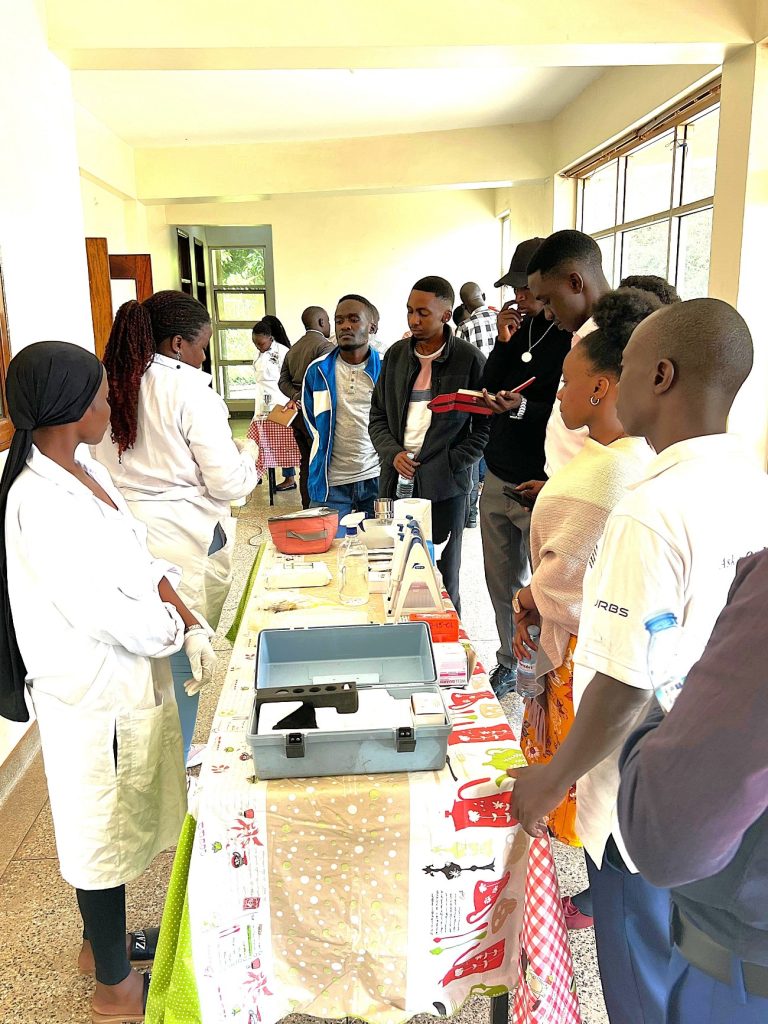
The sessions emphasized practical skills, performance analysis, and real-world application, equipping participants to train others and support solar adoption, especially in rural and off-grid settings.
Day Two: Water Treatment Technologies
The second day focused on water treatment technologies relevant to low-resource healthcare settings. Facilitated by Sneha De and Mr. Duc Dinh Ngoc from Hochschule Karlsruhe University, sessions covered technical, environmental, and operational challenges, with contributions from Dr. Joshua Wanyama on water quality management and Dr. Prossie Nakawuka on practical water testing.
Key challenges addressed included unreliable water supply and contamination in healthcare facilities, emphasizing the need for decentralized water treatment, especially in rural areas.
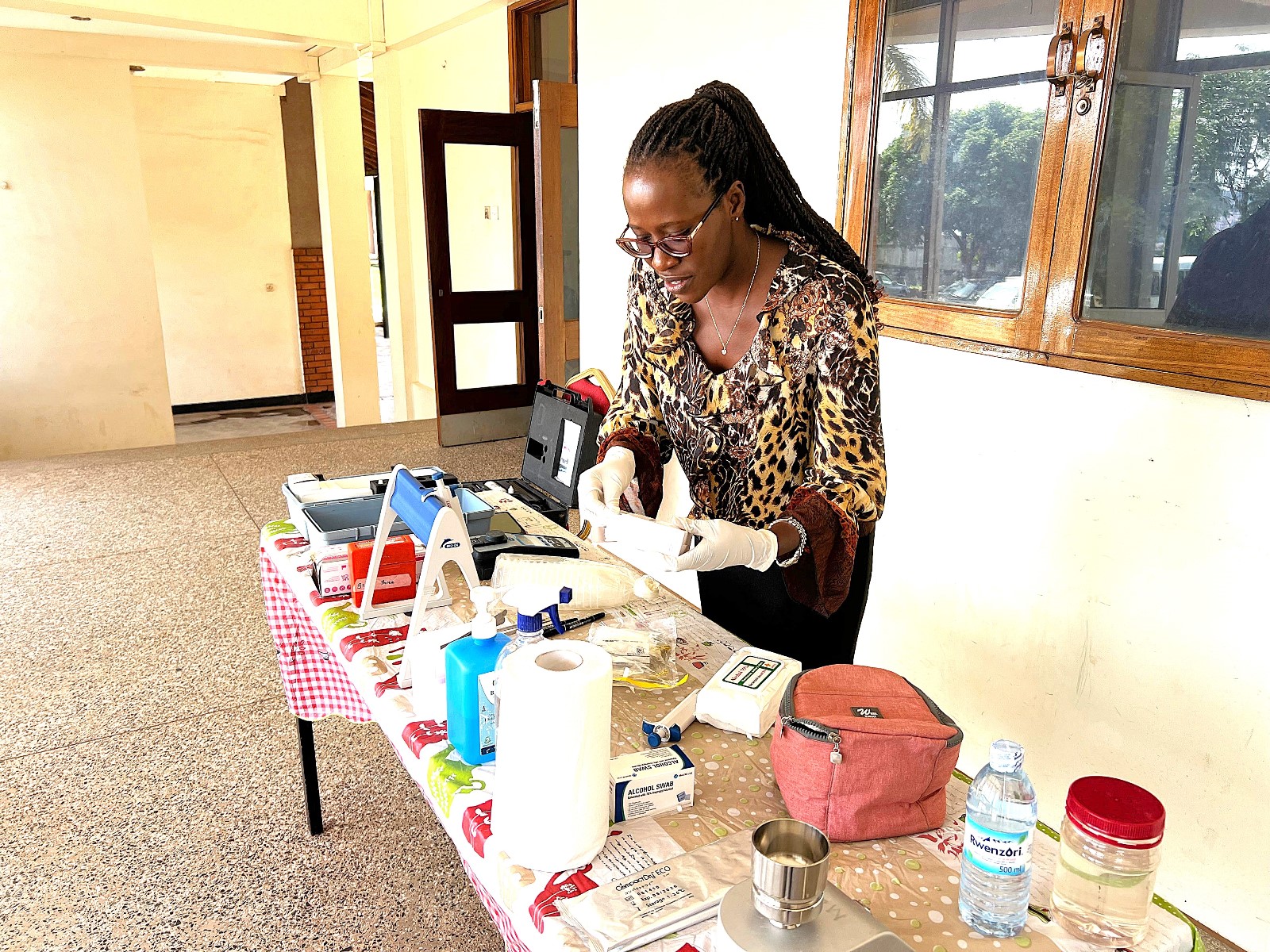
Sneha De reviewed biological and physical/chemical water treatment methods, highlighting technologies such as activated sludge, filtration, membrane bioreactors, and advanced disinfection techniques. The SophiA modular water treatment system, integrating ultrafiltration and membrane capacitive deionisation (MCDI), was introduced as a scalable solution for producing safe drinking and deionised water for medical use.
Mr. Duc Dinh Ngoc trained participants on the MCDI technology, an energy-efficient method for salt and fluoride removal suitable for low-salinity water.
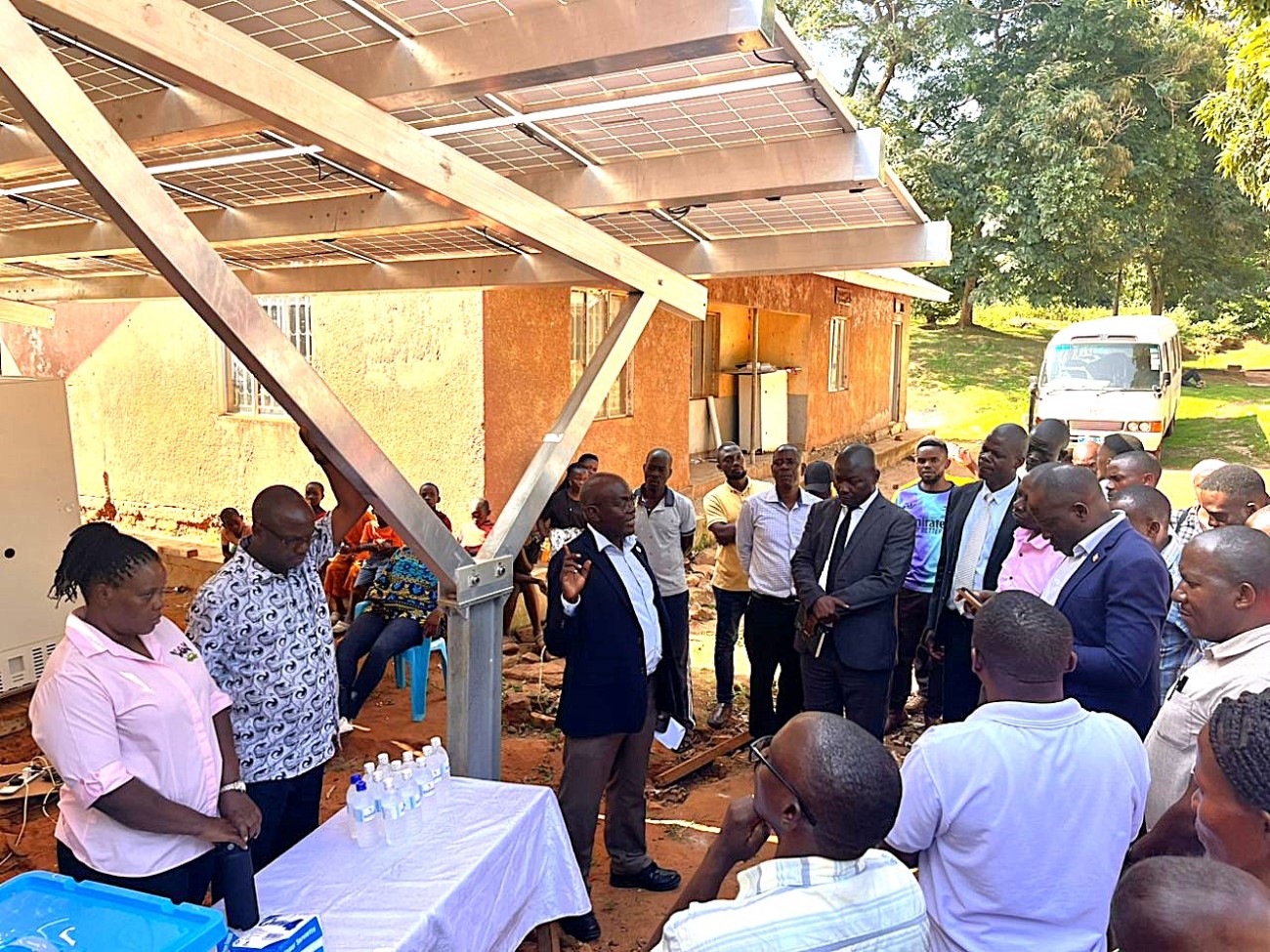
Dr. Joshua Wanyama discussed the water quality management protocols, outlining key physical, chemical, and biological water parameters and monitoring strategies, including modern IoT-based tools, to ensure water safety and public health.
The day concluded with a hands-on lab session by Dr. Prossie Nakawuka, where participants practiced water quality testing using turbidimeters, incubators, and filtration techniques.
Overall, Day Two combined theoretical insights, technology demonstrations, and practical skills, preparing participants to implement sustainable water treatment and quality management systems in healthcare environments.
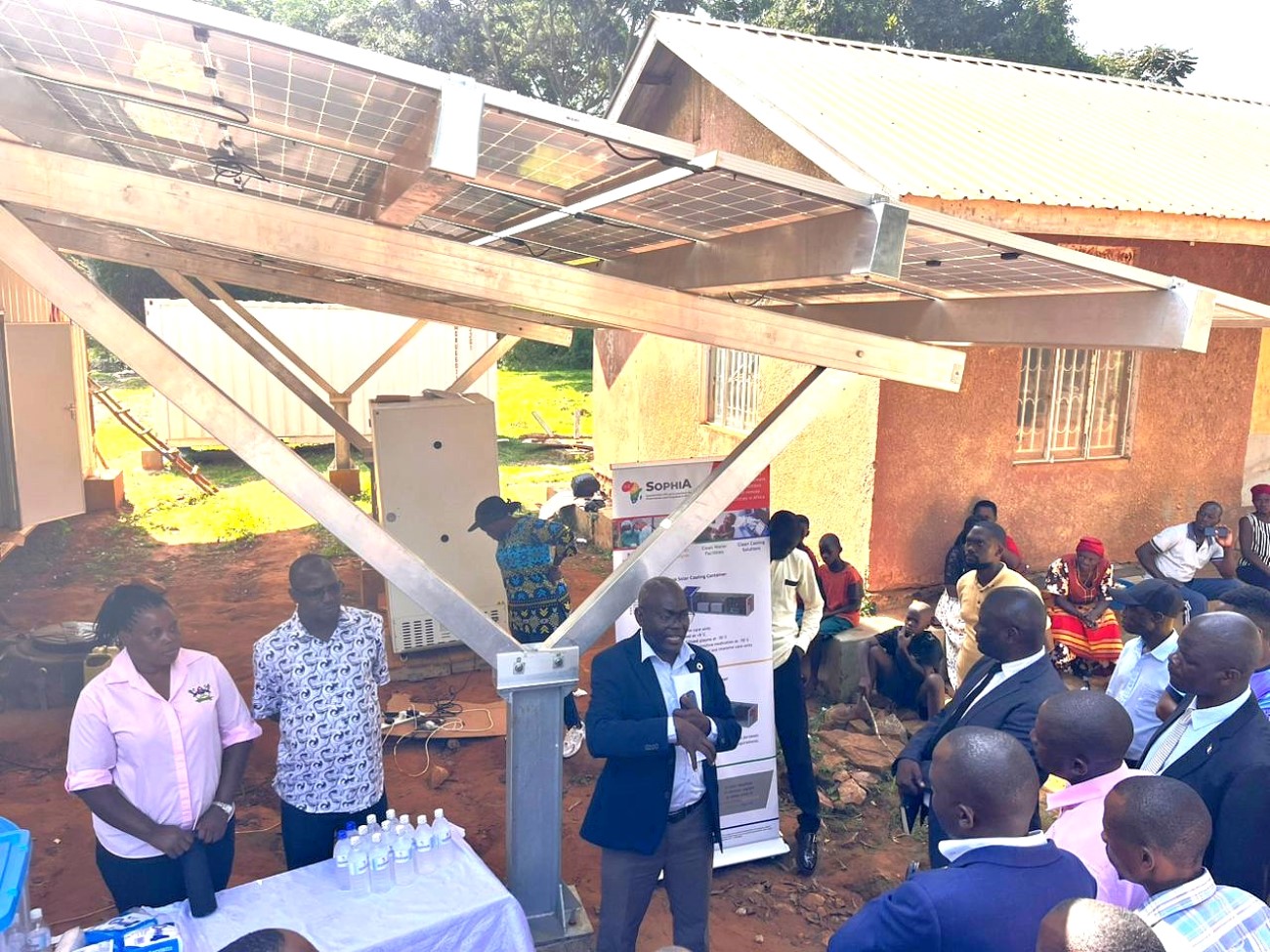
Day Three: Refrigeration and Cold Storage
The third day of the SophiA workshop focused on sustainable refrigeration and cold storage technologies tailored for healthcare in Sub-Saharan Africa. Experts discussed energy-efficient, climate-friendly cooling solutions vital for vaccine storage, medicines, and diagnostics, especially in off-grid and rural settings.
Key highlights included the introduction of solar-powered and biomass-based refrigeration systems, thermal energy storage methods, and the use of natural refrigerants like propane, ammonia, and CO₂ as environmentally safer alternatives. Presentations emphasized the critical role of refrigeration in healthcare and the urgent need to replace harmful chemicals with sustainable technologies.
Sessions covered real-world applications such as the SophiA cooling containers in Burkina Faso, safety protocols for flammable refrigerants, and the environmental and economic benefits of solar refrigeration systems assessed through life cycle analysis.
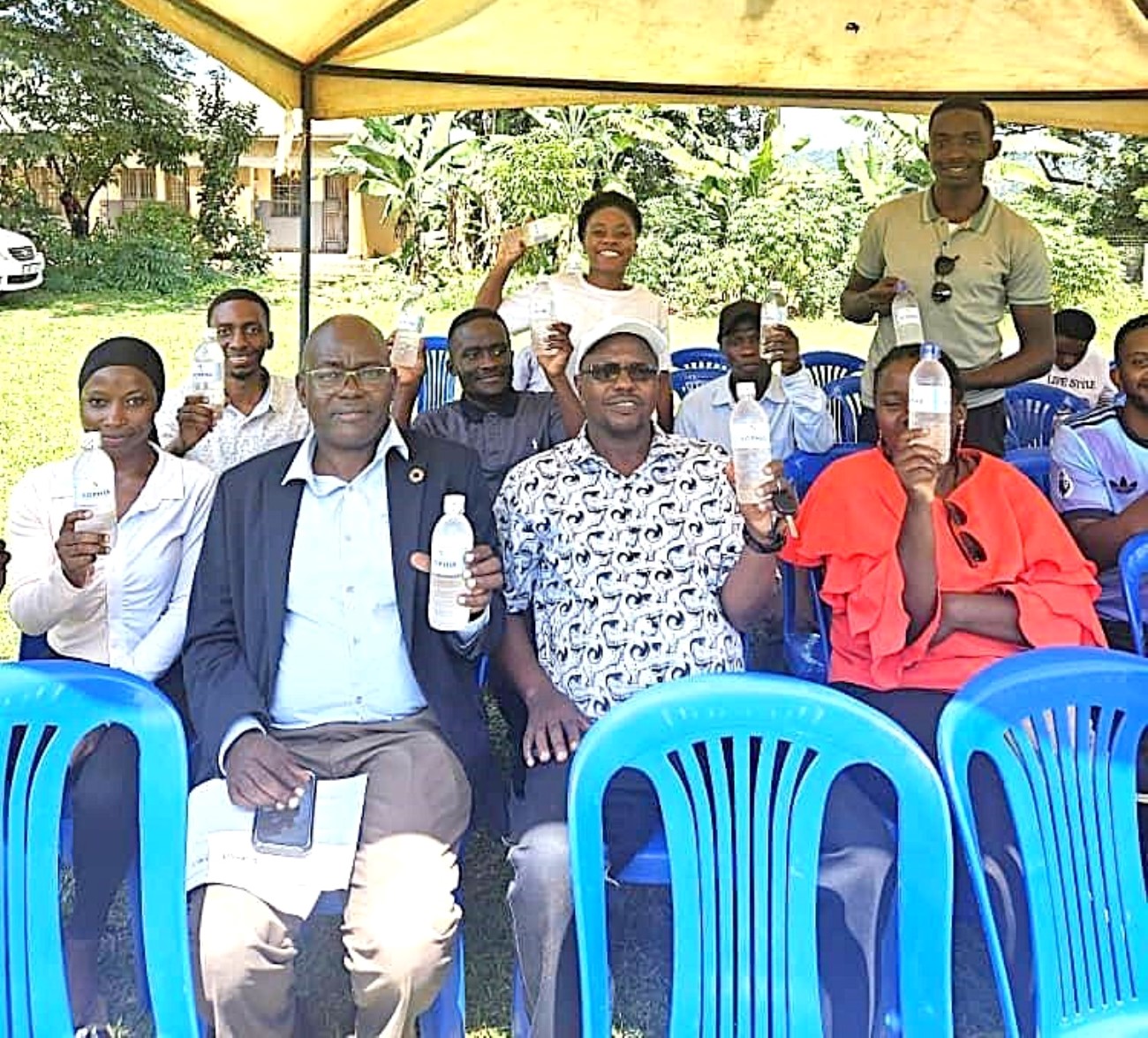
The day ended with an interactive quiz and discussion, reinforcing learning and encouraging participants to apply sustainable cooling practices in their communities.
Day Four: World Refrigeration Day & Field Visit to Buvuma Island
The fourth day of the SophiA Train the Trainers workshop was dedicated to the celebration of the World Refrigeration Day and a field excursion to Buvuma Island, providing participants with a unique opportunity to witness the SophiA system in action. The day was coordinated by Dr. Sarah Bimbona and Dr. Nicholas Kiggundu, who led the delegation to Buvuma Health Centre IV, the pilot site for the SophiA installation in Uganda.
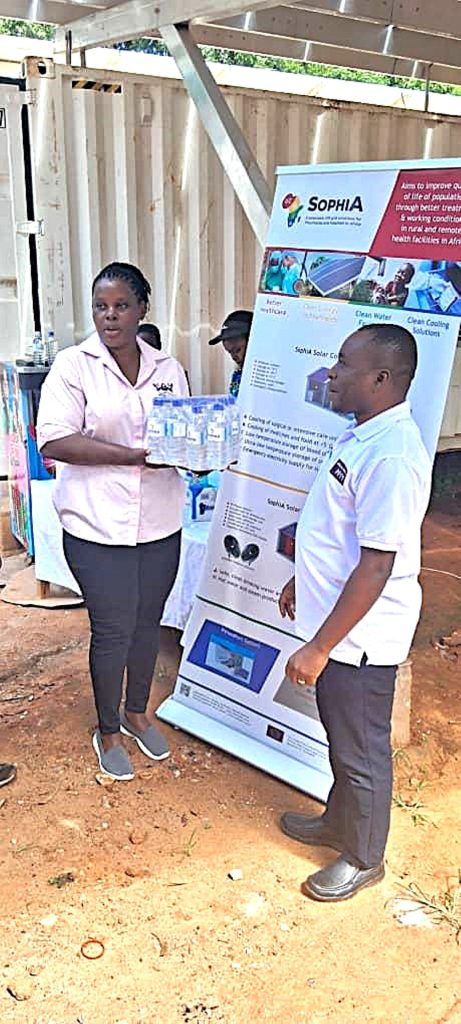
The visit served as both a practical extension of the previous day’s technical sessions and a community engagement event. Participants were able to observe the installed SophiA system, which integrates solar-powered refrigeration, water treatment and steam generation technologies designed for off-grid healthcare settings. During the visit, Dr. Kiggundu provided a detailed briefing to local stakeholders, including representatives from the Buvuma District Local Government, delegates from the Buganda Kingdom, and members of the local community. He explained how the SophiA system will enhance healthcare delivery on the island through reliable cold storage for vaccines and medicines, access to clean drinking water, and steam generated for cooking and use in the maternity wards.
As part of the long-term sustainability plan for the SophiA system, the launch of SophiA Water was announced, an entrepreneurial initiative designed to generate revenue locally for the operation and maintenance of the system.
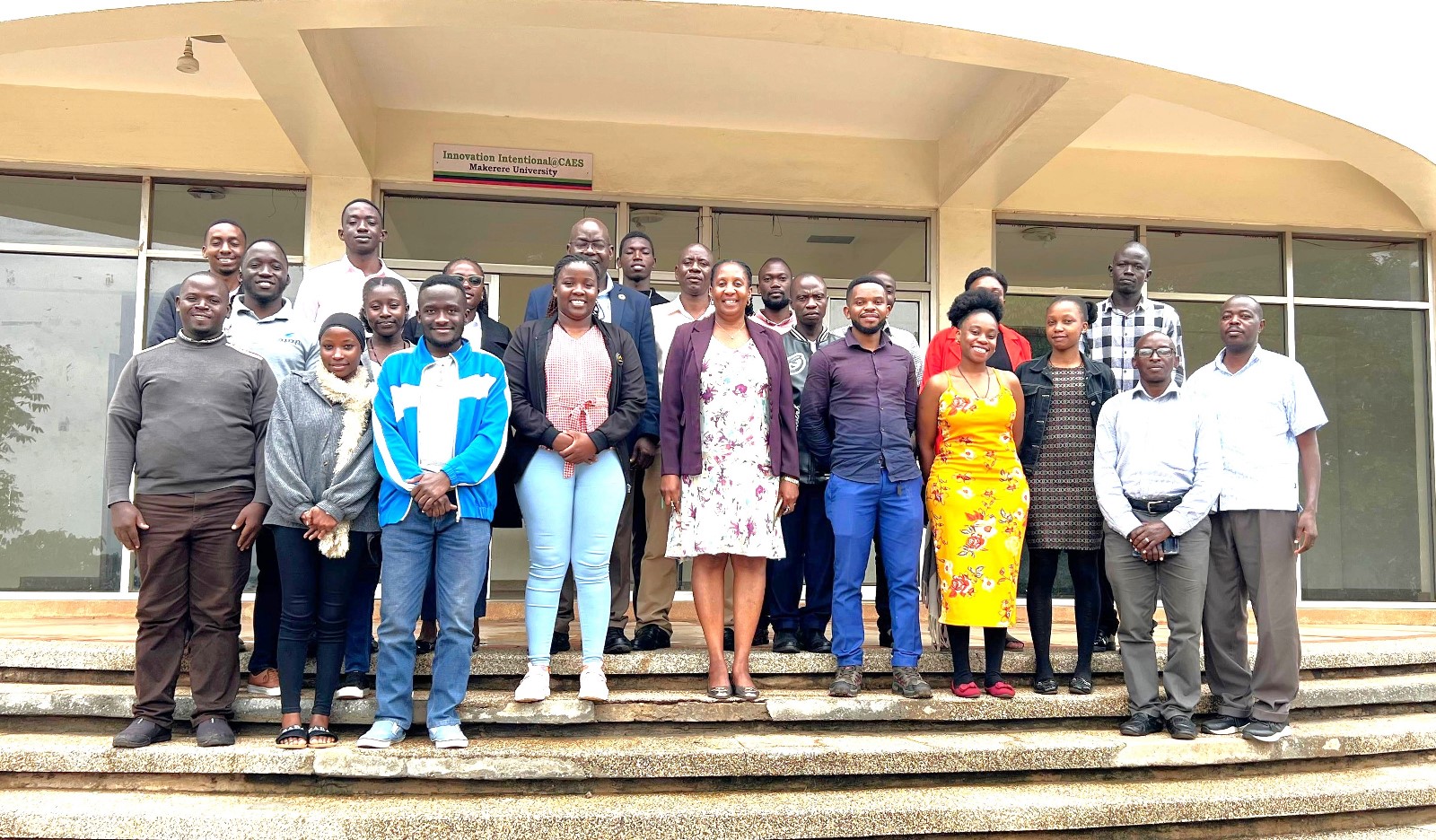
The field trip ended with a certificate awarding ceremony in appreciation of the participants’ dedication and active engagement throughout the training programme.
Agriculture & Environment
APRC Trains Graduate Students & Stakeholders in the Use of the African Agriculture Adaptation Atlas
Published
2 weeks agoon
July 3, 2025
The Agricultural Policy Research Centre (APRC), housed within the College of Agricultural and Environmental Sciences (CAES) at Makerere University, continues to play a pivotal role in shaping Uganda’s agricultural future through evidence-based policymaking. With a mission to ensure that agricultural policies are grounded in empirical research and data, APRC is actively investing in capacity-building initiatives that empower researchers, policymakers, and development actors.
In a significant stride toward building climate resilience in African agriculture, APRC recently organized a two-day intensive training workshop focused on the African Agriculture Adaptation Atlas (AAAA) – a state-of-the-art, web-based decision-support platform that facilitates the integration of climate data into agricultural planning and policy.

The workshop, held on Wednesday 25th and Thursday 26th June 2025 at the School of Agricultural Sciences, Makerere University, targeted two key groups: graduate students on the first day, and university faculty, government officials, and development practitioners on the second. This structure ensured tailored learning experiences for both emerging and seasoned professionals, helping to bridge the gap between academic research and real-world policy implementation.
The African Agriculture Adaptation Atlas (AAAA) is designed to provide dynamic, data-rich visualizations that support informed decision-making in agriculture and food systems across the continent. Through interactive maps and analytical tools, users can explore projected climate impacts, evaluate risks, and identify localized, climate-smart adaptation strategies.

Throughout the sessions, participants received hands-on training in a broad range of AAAA functionalities, including:
- Leveraging the Atlas for research and policy communication: Enhancing the ability of scientists and policy actors to translate complex climate data into actionable insights;
- Assessing projected climate impacts and associated agricultural risks: Essential for forward-looking planning and risk mitigation;
- Identifying climate-smart investment options, with a particular focus on the livestock sector, which is especially vulnerable to climate shocks;
- Analysing gendered vulnerabilities: Examining how climate change disproportionately affects women in agricultural communities;
- Understanding the implications of heat stress on agricultural productivity: Supporting targeted interventions to protect producers and their livelihoods;
- Estimating the economic returns of adaptation strategies: Aiding in prioritizing investments and allocating limited resources effectively.

Prof. Bernard Bashaasha, the APRC Coordinator, emphasized the importance of the training in advancing Africa’s adaptation agenda. “As climate change continues to threaten food security and disrupt livelihoods across the continent, tools like the AAAA, and the skills to use them effectively are essential. They empower decision-makers to craft policies that are adaptive, inclusive, and rooted in science,” he noted.
The workshop was coordinated by Dr. Florence Rwiza, Lecturer in the Department of Agribusiness and Natural Resource Economics at CAES.
More photos from the Training






Trending
-

 General2 weeks ago
General2 weeks agoRe-advert: Admission to Undergraduate Programmes 2025/2026
-

 General1 week ago
General1 week agoRe-Advert for Applications for Diploma and Certificate Training
-

 General5 days ago
General5 days agoMakerere University Fees Waiver for 40 First Year Female Students 2025/2026
-

 General2 weeks ago
General2 weeks agoPress Statement on Ranking
-

 Health1 week ago
Health1 week agoCall for Applications: Responsible Conduct of Research (RCR) Training Course
